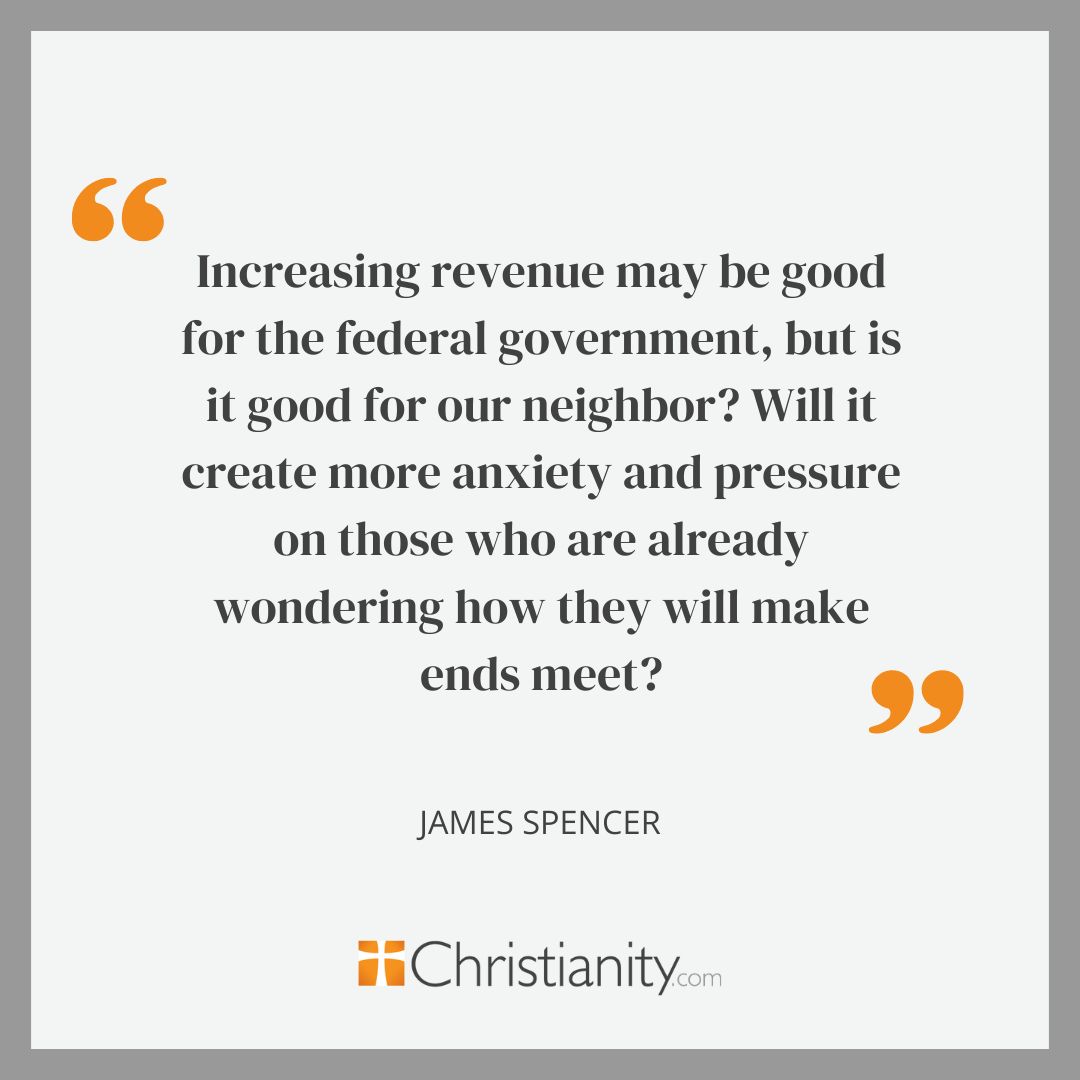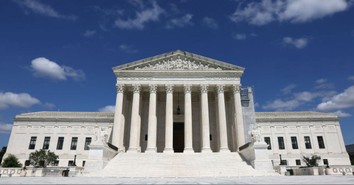What Trump’s Tariffs Reveal about Our Priorities and How Christians Should Respond

There was a time when only death was certain—not death and taxes…at least not the taxes we know today. After winning their independence from England and escaping “taxation without representation,” the federal government needed money to operate, but no one liked taxes. While the federal government used various taxes in various periods to fund its activities and pay its debts according to the Articles of Confederation, the first official income tax is normally traced to 1913 after the 16th Amendment was ratified.
So, if income tax wasn’t funding the federal government for all those years, what was? It was a mix of other revenue sources, including excise taxes—taxes on specific products—the sale of federal land, and tariffs. The 1789 tariff was described as “necessary for the support of government, for the discharge of the debts of the United States, and the encouragement and protection of manufactures.” Tariffs, however, proved unstable due to disruptions in trade. For instance, the war between Britain and France in the 1790s created challenges to maintaining pre-war trade volume. British policies restricting U. S. trade in the early 1800s also disrupted revenues and were a contributing factor leading to the War of 1812. After that war, the 1816 Tariff Act was put in place to protect U. S. industry and help ease the burden of the national debt. Protectionist tariffs remained in place until the tariff compromise of 1833, which called for all tariffs to be reduced to no more than 20% by 1842.
There are obviously a lot of years between 1842 and today. Technological advances, changing resource needs, and greater ease of communication and transportation don’t necessarily make old arguments obsolete, but they do require us to revisit arguments for and against tariffs. Though it is unlikely that tariffs will bring in the lion’s share of the revenues required to keep the federal government going, tariffs need not be relegated to a negligible source of revenue or an inadequate means of protecting U.S. industry. As such, there is a sense in which addressing the effectiveness of tariffs and the parity of trade agreements makes some sense.
Still, it isn’t clear that even the most optimal tariffs will be able to produce a significant percentage of the revenues necessary to support the federal government. Tariffs may be part of the answer; however, we need to keep history in mind. For instance, when tariffs were in place earlier in U. S. History, income tax revenues were relatively insignificant. If a tariff raised the cost of some good not otherwise available in the U.S., citizens could opt to pay for that good or not without also being taxed. Today, tariffs that increase the cost of goods manufactured in countries where laborers are not adequately compensated are simply passed on to consumers. Weaknesses in U.S. manufacturing are clearly part of the problem, but we also need to recognize that labor costs often make U.S. manufacturing less competitive.

So, are Trump’s tariffs working? It’s hard to say. The U.S. is seeing an increase in tariff revenues; however, it isn’t clear that increased import costs won’t be passed on to consumers. Perhaps more telling, our taxes aren’t decreasing as tariff revenue increases. Yes, there are new federal tax breaks of various sorts, and DOGE made some cuts to the federal budget, but there hasn’t been a wholesale reduction of federal spending on the scale that any of us would actually feel. Alienating other nations by increasing tariffs could have negative consequences, but such consequences are, at the moment, largely speculative. There is no simple solution to the U. S. economy, so any set of policies and changes will take time to mature. If the proof of the pudding is in the eating, we need to be patient as we wait for the pudding to be served.
As Christians consider Trump’s tariffs, we need to acknowledge that Trump is implementing tariffs in a new context. Government spending is much higher than it was when tariffs constituted 50-90% of federal revenues. Individual income tax has become the single largest source of federal revenue today. The share of U.S. manufacturing has decreased in relation to other countries. Each of these factors—and many others—suggests that viewing tariffs as a source of revenue apart from other factors is untenable. Increasing revenue may be good for the federal government, but is it good for our neighbor? Will it create more anxiety and pressure on those who are already wondering how they will make ends meet?
When Christians think about economic strategies, we ultimately need to consider how they are impacting those who are already struggling. Are the economic policies being put in place designed to fix a revenue problem for the federal government or to serve the people? I suppose those two need not be mutually exclusive. At times, ensuring the federal government has the money to operate or to sustain a particular program is good for U. S. citizens—at other times, not. The economics of the U. S. are highly complex.
I wouldn’t profess to understanding them fully. I do know, however, that the church is to think about money not in a cold, calculating manner, but in a way oriented to God and neighbor. As such, we must ask whether tariffs or—more importantly—the federal budget as a whole serves the people. As we see financial policies and systems harming our neighbor, we need to point to that harm. We may not have a solution. That’s okay. We aren'y responsible for fixing every broken system, but we should not act as if the brokenness does not exist. I don’t know if Trump’s tariffs will end up being good or bad. My hope is that they will be beneficial. Either way, Christians need to recognize that no matter what economic policies are instituted, our basic role doesn’t change. We are to love God and others even if financial systems make it more difficult to do so.
Photo Credit: ©Unsplash/Ian Taylor


Originally published August 04, 2025.







